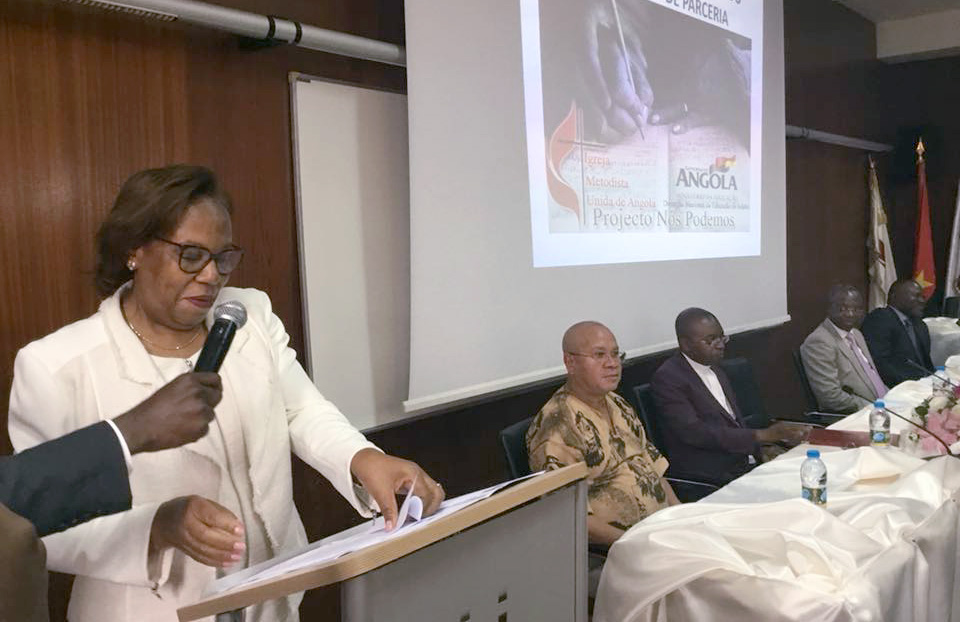The United Methodist Church in Angola is continuing its efforts to fight illiteracy in the country, partnering with the government on a new initiative that will turn its chapels into education centers to teach reading and writing.
The “We Can” partnership was introduced by representatives of United Methodism’s Western Angola Conference and senior officials from the country’s Ministry of Education. Together, they plan to offer literacy classes in churches in the Western Angola Conference, which covers 12 of the country’s 18 provinces.
Current statistics show an illiteracy rate of approximately 23 percent in the southwest African country.
“At present,” said Maria Cândida Teixeira, Angolan minister of education, “more than 4 million Angolans between the ages of 15 and 35 still do not know how to read or write.”
Many factors, she continued, “justify the high number.” Problems such as domestic violence, early pregnancy, crime and prostitution are linked to lack of — or insufficient — education, she noted.
In Angola, the fight against illiteracy dates back to the post-independence era (1975), when about 85 percent of the adult population could not read or write. Since the arrival of missionaries led by Bishop William Taylor in 1885, The United Methodist Church and its predecessors have played a leading role in Angola’s educational system.
The Rev. Manuel André, speaking for Western Angola Bishop Gaspar Joao Domingos, said, “The United Methodist Church now has the commitment to turn its chapels into centers of education to help citizens who need to learn how to read and to write.”
He pointed out that the effort is a continuation of what the church already is doing.
Juscelina Débora, who directs women's organizations in the conference, stressed the importance of the initiative.
“It will raise the level of knowledge on the part of women who do not know how to read or write,” she said, “thus allowing a greater range of the literate in the organization, mainly in rural areas and places where the war did not allow (many) Angolans to sit in a classroom setting.”
She expressed hope that men would “gain the courage … to attend literacy rooms and lose prejudice that literacy is only for women.”
A memorandum, signed by Angola’s national director of adult education, Evaristo Pedro, and André, states that the government and the church will work jointly to prepare volunteers to teach literacy, provide training materials and certify trainees.
An estimated 58.5 percent of students ages 12 to 17 — about 2 million in all — are behind at least one grade level in school, according to Angola’s Ministry of Education.
“The education sector,” Teixeira explained, “intends to implement the programs contained in (the Nigerian government’s) ‘Agenda 2030,’ which aims to transform the lives of the population through education as the main drive for the country's development and citizens' well-being.
“I am committed to extending and improving the education network throughout the country, so that all citizens can have access to academic training.”
Da Cruz is a communicator for the West Angola Annual Conference.
News media contact: Vicki Brown, Nashville, Tennessee, (615) 742-5470 or [email protected]. To read more United Methodist news, subscribe to the free Daily or Weekly Digests.
Like what you're reading? Support the ministry of UM News! Your support ensures the latest denominational news, dynamic stories and informative articles will continue to connect our global community. Make a tax-deductible donation at ResourceUMC.org/GiveUMCom.




